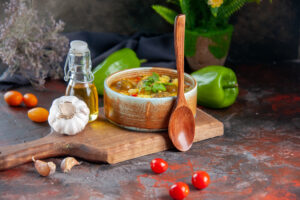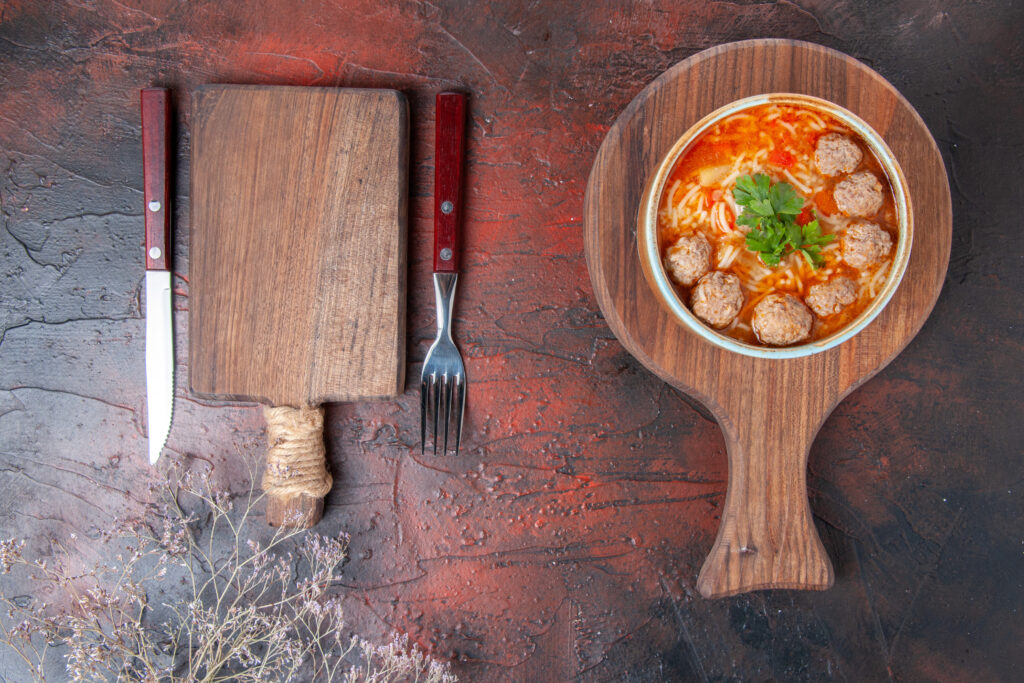Wooden cooking utensils are deeply ingrained in our global heritage, evoking memories of childhood and connecting us to our past. They offer a unique experience, reminiscent of the aroma of a familiar forest surrounded by trees. In today’s fast-paced world, amidst the hustle of modern appliances, wooden cookware stands as a timeless symbol of tradition. These humble tools not only carry the whispers of grandmothers from past generations but also infuse contemporary cooking with delight and nostalgia.
In the Kitchen: Enjoy the Forest’s Aroma with Wooden Utensils

At the heart of the kitchen, where culinary creations come to life, wooden utensils play an important role. These timeless tools not only adorn the countertop but also imbue the space with the enchanting essence of forest aromas. With their smooth texture and comforting warmth, wooden utensils offer a sensory experience unlike any other, elevating cooking into a cherished ritual. When you use a wooden spoon to stir a pot of simmering curry or toss a salad, a gentle rhythm is created, rather than the noisy hum of contemporary gadgets that are audible and obsessive and comforting. And then there is the scent of the forest. A subtle whiff of aged oak from a rolling pin, or the subtle honeyed scent of maple wafting from a spatula – these aromas instantly transport you to grandma’s kitchen, evoking memories of warmth, love and shared meals. These sensory experiences elevate cooking beyond a mere chore, turning it into a cherished ritual, the kitchen becoming a sanctuary of creativity and nostalgia, where the aroma of the forest and memories of shared meals remind us of the joy found in life’s simple pleasures.
The Practicality and Versatility of Wooden Utensils: More than Just Nostalgia
But nostalgia isn’t the only reason to use wooden spoons. Wood boasts natural non-stick properties, ideal for tasks like frying eggs or flipping delicate pancakes. They’re gentle on cookware, preventing scratches on your cherished cast iron skillet or ceramic pot. Unlike plastic, wooden cookware does not emit harmful chemicals, ensuring a healthy and natural cooking experience. Additionally, their thermal insulation properties prevent burns and make them comfortable to handle.
Embracing Eco-Sustainability: Cooking with Fragrant Wooden Utensils
In an age of increasing environmental concern, wooden containers offer a responsible choice. Made from renewable resources such as bamboo or hardwood, they are biodegradable and compostable, reducing their environmental impact. By choosing wooden containers, you are not only adopting a sustainable lifestyle but also supporting local artisans and responsible forestry practices.
Serving with Warmth: Enhancing the Dining Experience
Serving food with wooden utensils can enhance the dining experience by infusing meals with a delightful fragrance. Wooden vessels add an undeniable aesthetic appeal to food presentation, beyond just being mere containers. The natural warmth and beauty of wood creates a rustic and inviting atmosphere, reminiscent of farmhouse kitchens and outdoor gatherings. Against the neutral tones of the wood, the vibrant colors of your culinary creations pop, enhancing the visual presentation and making the food the star of the show. The tactile experience adds another layer of appreciation, as guests can feel the smooth texture of the utensils, creating a more sensory and memorable dining experience.

Wooden Kitchen Appliances: A Timeless Tradition in the Modern World
In the age of AI, it’s easy to forget about the traditions that give meaning to our lives. However, wooden utensils remind us of our shared culinary heritage. Every spoon or spatula carries the story of our ancestors, connecting us to a time when cooking meant more than just making food; it was a communal experience that expressed love and care.
Wooden vessels provide a perfect balance between modern amenities and the rich history they hold. They remind us to take our time, enjoy the cooking process, and appreciate the beauty of simplicity. The soft grip of ceramic bowls and the smooth feel of wood against our hands – these small details transform cooking into a sensory journey, connecting us to our roots and creating lasting memories.
Images: Freepik.com
